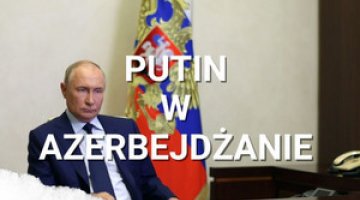Azerbaijan – a major purge ahead of the parliamentary election
Azerbaijan’s Ministry of National Security underwent a reshuffle between 17 and 24 October. Eldar Mahmudov, who had led the ministry for many years, and several senior officials were dismissed with immediate effect, and at least nine former employees (including four generals) were detained. According to official information, an organised criminal group involved in a protection racket and illegal takeovers of assets was allegedly operating at the ministry. The new minister is yet to be nominated. The function is currently being performed by the new deputy minister, Madat Quliyev, who took his post on 19 October and has been busy dismissing ministry workers since then.
Commentary
- The reshuffle took place a few days ahead of the parliamentary election (1 November). The fact that no successor to the minister has been appointed proves that this was an emergency decision. The official justification for the reshuffle is most likely merely a smoke screen – in the corrupt Azerbaijani system protection rackets and illegal takeovers of assets are fairly commonplace. The reshuffle is above all a sign of President Ilham Aliyev’s growing concern about the loyalty of individual members of the cabinet and that he has only repressive methods at his disposal with which to control the elite. In this context, Aliyev will probably use the post-election period to further settle accounts with members of the elite – the minister recently dismissed was linked to other representatives of government circles. The fact that this major reshuffle took place right before the election at a ministry of key importance for internal security also suggests that the president is more afraid of conspiracy inside the government elite than of public unrest.
- In the broader context, the dismissals at the ministry are symptomatic of the continuing erosion of the political system in Azerbaijan. Until recently, the loyalty of representatives of individual clans who were allowed to join government circles was ensured by their share of the spoils, chiefly those generated by oil exports (in 2014, the oil sector accounted for around 90% of total export revenues). Since oil prices fell, the cash reserves to be distributed have shrunk dramatically; and this is giving rise to conflicts within the elite and is adversely affecting its cohesion – since May this year four Azerbaijani diplomats have refused to come back home in fear of repressions. This means that the ruling elite’s cohesion is likely to weaken further in the coming months, which may become a destabilising factor.
- The upcoming election in Azerbaijan is fully controlled by the government (to take one example, one third of those willing to seek election were not admitted as candidates) and will change nothing in the country’s political system which is evolving towards hard-core authoritarianism and restricting relations with the EU. Furthermore, Baku made successful efforts to cause the OSCE to relinquish its plans to send an election observation mission to Azerbaijan, and has applied extensive pressure on the media and families of independent journalists staying abroad. The government’s policy has had a damaging effect on channels of communication with the public, and the deteriorating economic situation is exacerbating social problems, thus adding to the risk of uncontrolled outbursts of discontent.





